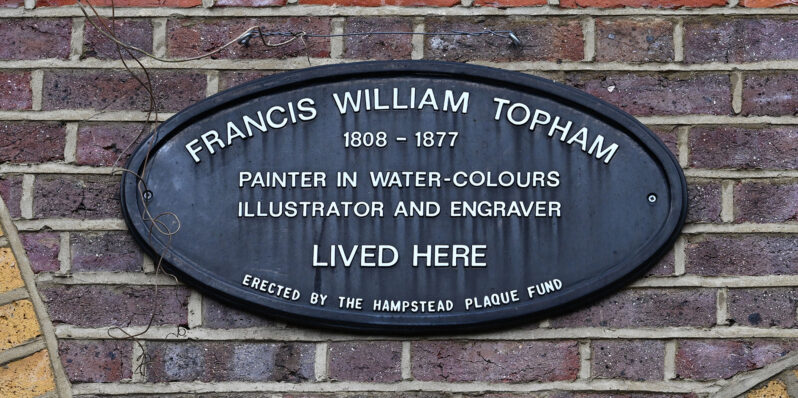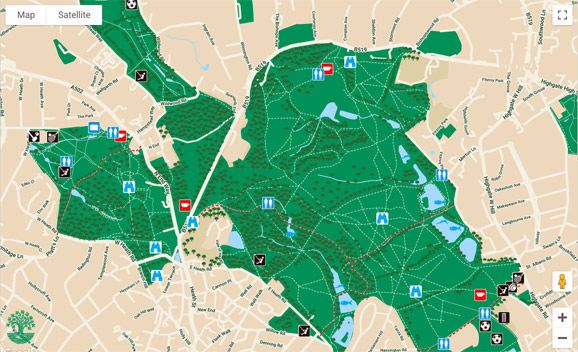Sir Thomas Beecham, 2nd Baronet CH (1879 – 1961)
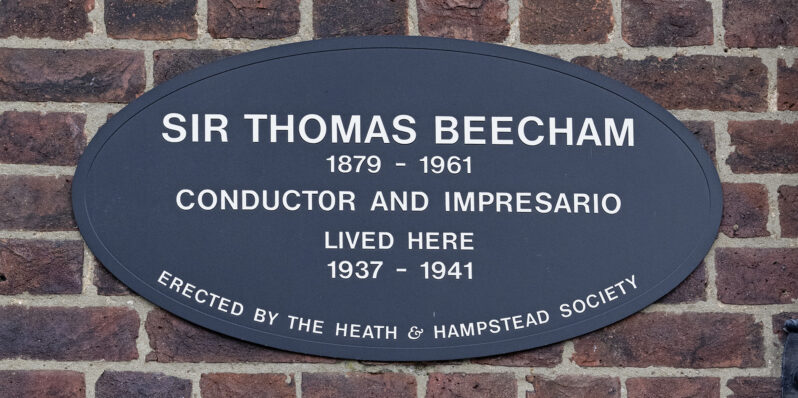
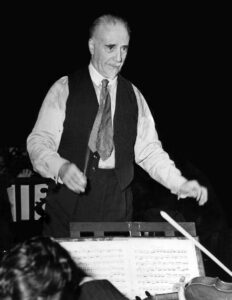 Sir Thomas Beecham, 2nd Baronet CH, was a notable English conductor and impressario best known for his association with the London Philharmonic and the Royal Philharmonic Orchestras.
Sir Thomas Beecham, 2nd Baronet CH, was a notable English conductor and impressario best known for his association with the London Philharmonic and the Royal Philharmonic Orchestras.
He was born in St. Helens Lancashire next to the Beecham’s Pills laxative factory which was founded by his grandfather Thomas Beecham. He studied piano from boyhood and began conducting with the amateur St Helens Musical Society.
He was pivotal in the development of professional orchestras in the early twentieth century. He founded three orchestras – the Beecham Symphony Orchestra in 1909, the London Philharmonic Orchestra in 1932 and the Royal Philharmonic in 1946 – and acted as the artistic director of Covent Garden for much of the 1930s. Beecham was a major influence on the musical life of Britain and according to the BBC he was Britain’s first international conductor. He was knighted in 1916.
He produced 120 operas, 60 of them new to this country.
He had a particular penchant for north-west London, living in St Johns Wood for four years, very close to the Abbey Road Studios. He lived in Bellmoor from 1937-41. He was married 3 times: first in 1903, then in 1943 to a pianist 29 years his junior and again in 1959 – she was 27 and he was 80!
He had a formidable personality and was famous for his sharp wit. He died in 1941 and is buried in Limpsfield, Surrey.
Sir Cecil Beaton (1904-1980)
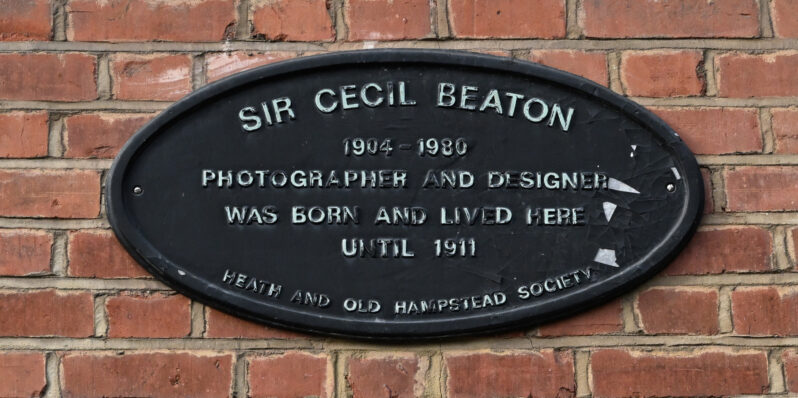
Sir Cecil Walter Hardy Beaton was one of the most celebrated British portrait photographers of the twentieth century and is known for his images of elegance, glamour, and style. His influence on portrait photography lives on today in the work of many contemporary photographers. (more…)
Herbert Henry Asquith (1852-1928 )
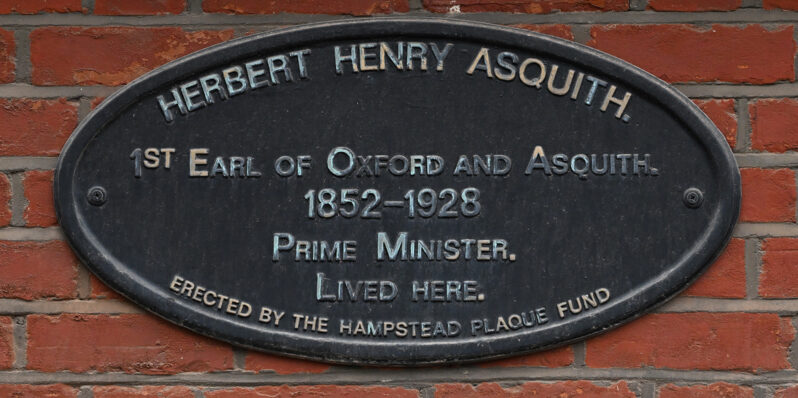
The 1st Earl of Oxford and Asquith, generally known as H. H. Asquith, was a British statesman and Liberal Party politician who served as Prime Minister from 1908 to 1916. (more…)
Parish Lock-Up
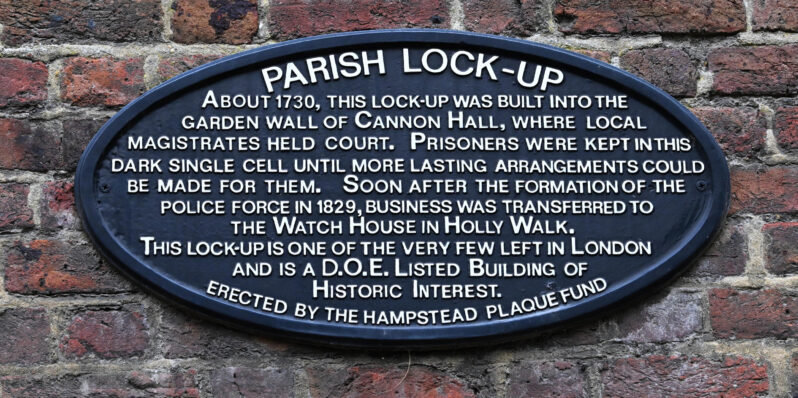
The Parish Lock-Up was formally unveiled in September 1981 by Sir David McNee the Commissioner of The Metropolitan Police from 1977 to 1982. He was Britain’s most senior police officer at a time of racial, political, and industrial turmoil in London. (more…)
Norway House
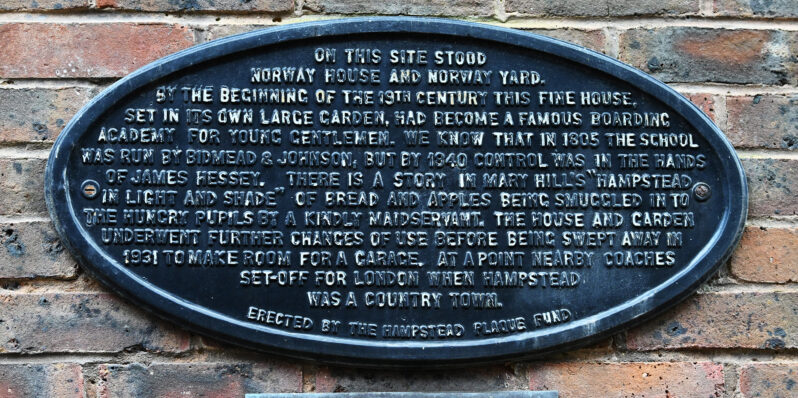
On this site stood Norway House and Norway Yard.
By the beginning of the 19th century this fine house set in its own large garden, had become a famous boarding academy for young gentlemen. (more…)
Westfield College
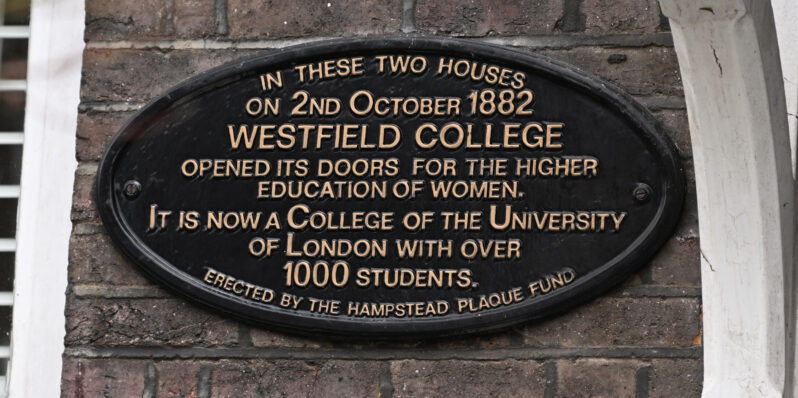
Westfield College was founded in 1882 through the efforts of four female pioneers seeking to bring further education to women, when it was not considered a priority. (more…)
The Watch House
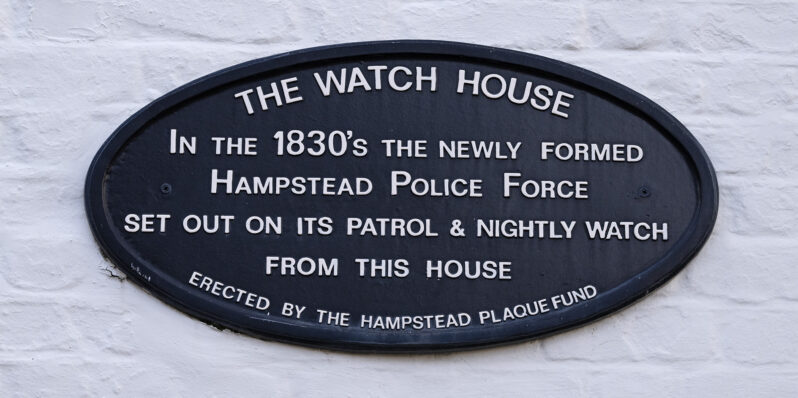
On June 19 1829 1829 the Metropolitan Police act was given Royal assent. This placed policing arrangements for the Capital under the control of Sir Robert Peel. Sir Robert organized the force on civilian lines rather than paramilitary. It became the third official non paramilitary police force in the world alongside the City of Glasgow Police and the Paris Police. (more…)
Sir William Walton (1902-1983)
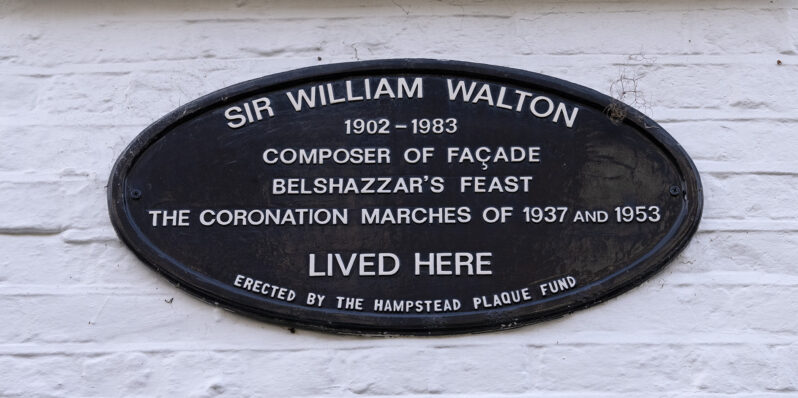
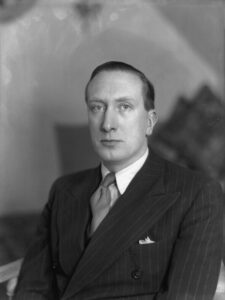 William Walton was born in Oldham, Lancashire. In 1912 he entered Christ College Cathedral School in Oxford, where he studied for six years and he caught the attention of Sir Hubert Parry, who was best known for his choral song ‘Jerusalem’.
William Walton was born in Oldham, Lancashire. In 1912 he entered Christ College Cathedral School in Oxford, where he studied for six years and he caught the attention of Sir Hubert Parry, who was best known for his choral song ‘Jerusalem’.
Walton became an undergraduate of Christ Church, Oxford at the age of 16 but, in 1923, he was ‘sent down’ with no degree or any firm plans. He was next taken into the Chelsea home of the siblings Osbert and Edith Sitwell – he later recalled that he was taken in for a few weeks but stayed for fifteen years.
He had his first (scandalous) success in 1923 with Façade – the audience listened with breathless attention as Edith Sitwell’s voice was recited through a megaphone, behind a screen, to Walton’s music! Despite the fact that he found composing a difficult and laborious task he wrote the Crown Imperial coronation march for George VI in 1937 and the Orb & Sceptre Coronation march for Queen Elizabeth II in 1953.
In 1956 Walton sold his London home and moved to Ischia in Italy where he died in 1983. His ashes are interred there, and a commemorative stone was dedicated 1983 in Westminster Abbey.
This plaque was unveiled in 1986 by the conductor Norman del Mar who spoke of Walton’s dry wit and self-deprecating sense of humour.
Marie Stopes (1880-1958)
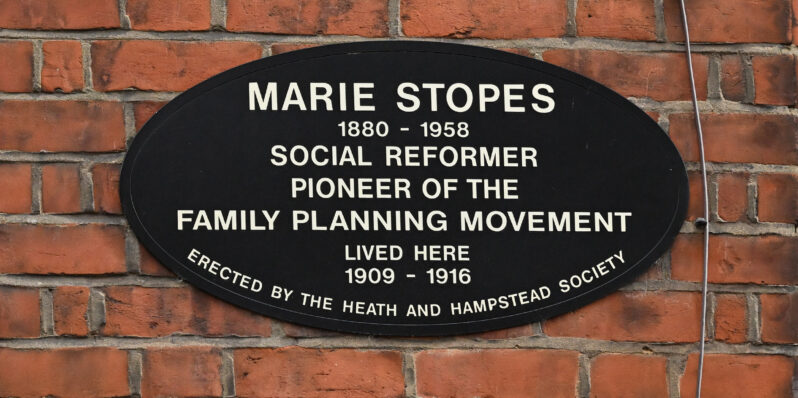
Marie Carmichael Stopes was an author, campaigner, palaeobotanist, a campaigner for eugenics and a pioneer of women’s rights. (more…)
